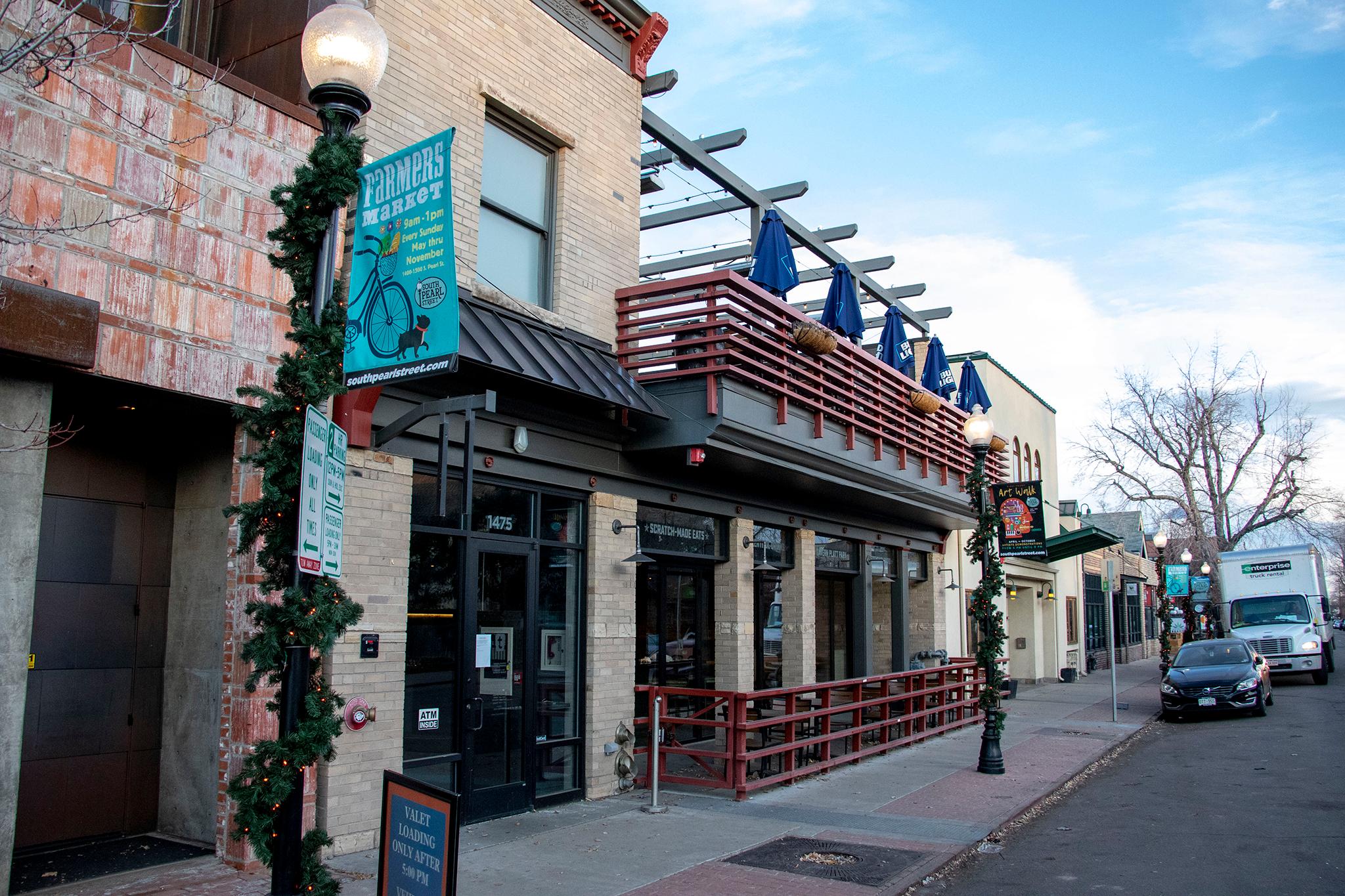Walking down the historic section on South Pearl Street in Platt Park at dinner time, it seems a bit quieter than normal. Palizo Italiano, Hanson's Grill & Tavern and Platt Park Tavern all closed between November and December on South Pearl, leaving large vacant buildings on the usually bustling street.
While restaurants come and go on Pearl, Hanson's had been a fixture for almost 20 years. The loss of a beloved local haunt along with two other closures at the same time has prompted concern among some Platt Park residents and business owners. Some say the closures are a sign of the rising difficulties that restaurant and small business owners are facing across the city. Others say increasing property values -- and taxes -- are driving out the independent businesses that made those areas popular in the first place.
"People are pretty upset and agitated and some are feeling a little bit hopeless," said Jamie Giellis, former mayoral candidate and Platt Park resident who volunteers for the Platt Park People's Association.
For Frank Schultz, the owner of Tavern Hospitality Group, which owned Platt Park Tavern as well as many popular bars and restaurants around Denver, the margins at the sports bar no longer made sense.
For the last several years, Schultz has been downsizing his restaurant portfolio, recently closing a chain of "Taverns" in different neighborhoods along with popular bars like the Cowboy Lounge.
According to Schultz, his company is now focused on having fewer restaurants that have potential for higher sales in order to combat increasing pressures on the industry: Denver's increasing minimum wage, rising property taxes and other costs of doing business. Schultz said the sales at Platt Park Tavern did not justify the increase in expenses. He sold the building that housed the tavern in December for $4 million.
While some restaurant models still work in Denver, he believes many restaurants will need to raise their costs in the next several years to make up for these additional expenses. The Colorado Restaurant Association, in its vocal opposition to Denver's minimum wage hike, echoed many of Schultz's concerns.
"There is a little bit of a perfect storm brewing in the hospitality industry in my opinion and other people's opinion," he said. "It all relates to Platt Park and why I closed it. There is going to be a massive adjustment for bars and restaurants over the next two years."
Denverite reached out to the owners of both Hanson's and Palizo Italiano, but did not receive a response.
Some see new development as a "threat."
While restaurant closures have grabbed headlines all across Denver, Platt Park residents worry about South Pearl Street in particular as large residential developers begin to show interest in the historical commercial street.
In September, the Platt Park People's Association released a strategy guide for restrictions in the neighborhood by way of a "design overlay." A design overlay adds extra requirements into the zoning code for new buildings in an area. The association's proposed overlay would require buildings on Pearl to include an "active use" on the first floor of a building -- something like a store, office or restaurant.
For more than two years, the association has held outreach meetings with businesses and restaurants to strategize. The next step is to model the changes using hard data to determine how new rules would affect the street. Organizers will then send it to the Planning Board, which will either advance it or not to the Denver City Council for approval.
If approved, the overlay could go into effect in the next eight to 10 months but will likely take longer, Giellis said.
According to Giellis, the intent of the overlay would be to "maintain the vibrancy" of Pearl Street. Without it, vacancies on Pearl, like those left behind by the restaurant closures, could become large residential developments without ground-floor activity. None of the plans for the closed properties in question have yet been made public.
"Some of those were anchor tenants for the street so it very much begs the question, what's next?" Giellis said. "A lot of people fear that they are going to be turned over to residential development and we still don't have anything in place."
While Giellis and other members of the Platt Park People's Association believe that an overlay can help stave off a residential takeover of Pearl Street, she says that in the last few months they've heard concerns from business owners who feel like a commercial first floor may not be viable.
"What we are starting to hear from people is that the reality of the costs has made some of these businesses simply no longer feasible in Denver or on this street," she said.
While many in the Platt Park neighborhood are concerned about closures on Pearl Street, some amount of restaurant turnover is to be expected.
"The businesses here, while nothing is easy, continue to prosper," said Mark Gill, the president of the South Pearl Street Merchants Association. "When someone moves out like this, I usually don't even see a sign on the window. There are almost never vacancies for long."
Councilman Jolon Clark, whose district includes South Pearl, has been monitoring reports of rising costs from business owners over the last few months and is working with state legislators to see how to address issues like property tax increases. But while he is concerned about rising costs, he cautioned against attributing a few closures to a citywide trend.
As a longtime regular at Hanson's, he says this particular spate of closures hit him very hard personally. At one time he regularly worked out of the tavern and said that he held his party there when he was elected in 2015.
"When some place like that has those deep ties, even if it was the only thing that was changing, it just feels like everything is changing," Clark said. "It's difficult things to discern what the cause for a closure is when we are talking about a business where something like 50 percent close within three years. Are we at a tipping point with these other issues or is this just normal?"













